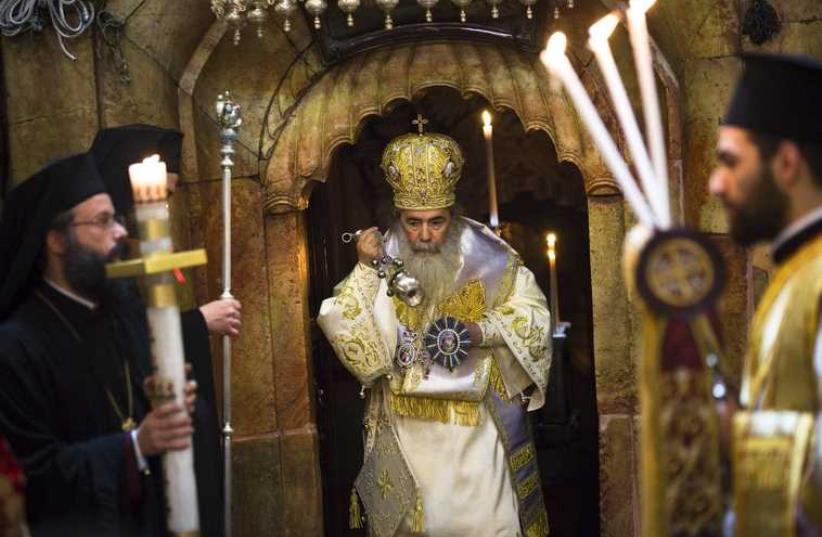
If you believe that Easter has passed, reconsider your stance. The celebration of Easter in Jerusalem, where a majority of Christians belong to Orthodox denominations, is still on the horizon. Unlike the Easter observed in the West this past weekend, the Orthodox will mark Easter on May 5, a full five weeks later.
The historical reason behind this date disparity can be traced back to 1582 when Pope Gregory made revisions to the Julian calendar, initially established by Julius Caesar in 45 BCE. The introduction of the Gregorian calendar created a two-week gap between the two calendars, leading to a division between denominations. While Catholic and Protestant churches adopted the Gregorian calendar, Orthodox churches continued to follow the Julian calendar.
The adjustment made by Gregory aimed to address the drift between the calendar year and the solar year, as explained by Yisca Harani, an Israeli scholar specializing in Christianity. She emphasized that a few minutes unaccounted for in a calendar year could eventually lead to significant seasonal shifts, particularly affecting the timing of biblical feasts like Passover and Easter.
Orthodox Easter is scheduled after the Jewish Passover on the Julian calendar, ensuring that it follows this significant event. This practice is rooted in the symbolic connection between Jesus and the sacrificial lambs of Passover. The Orthodox community remains steadfast in this tradition, underscoring the theological importance of the sequence of these celebrations.
Easter, a cornerstone holiday in Christianity, commemorates the resurrection of Jesus following his crucifixion in Jerusalem around 30 CE. The linguistic origins of the term “Easter” can be traced back to the Aramaic Pascha and Hebrew Pesach, both meaning Passover.
Despite their relatively small population size, Christians in the Holy Land, encompassing various denominations such as Catholic, Lutheran, Anglican, Greek Orthodox, and more, play a significant role in the cultural and religious tapestry of the region.
The week leading up to Easter, known as Holy Week, encompasses pivotal events from Jesus’ final days, including Palm Sunday, the Last Supper, and Good Friday. These observances are shared by both Western and Eastern Christians, converging in Jerusalem for a period of heightened spiritual significance.
The culmination of the Easter festivities occurs on Saturday, May 4, with the Holy Fire ceremony at the Church of the Holy Sepulcher. This ancient tradition symbolizes the resurrection of Christ, with a flame emerging from his tomb and being passed among the faithful, both locally and globally.
Amidst the subdued atmosphere due to the ongoing conflict in Gaza, the heads of churches in Jerusalem have emphasized unity and peace, underscoring the message of Christ’s resurrection and advocating for a cessation of hostilities. The timeless tradition of the Holy Fire ceremony serves as a beacon of hope and faith, transcending the challenges of the present day.
